Iran's Culture Minister Says Music Promotion Not Regime Policy
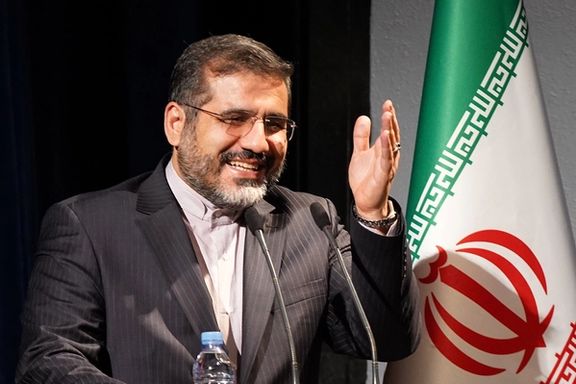
Iran's Culture Minister stated on Thursday that music and musical works cannot be promoted, given the opposition of the clerical government that creates "constraints."

Iran's Culture Minister stated on Thursday that music and musical works cannot be promoted, given the opposition of the clerical government that creates "constraints."
Speaking about balance between the pressures from the clerics and the growing demand for diverse cultural expressions, Mohammad Mehdi Esmaili emphasized the need for governmental decisions amidst conflicting interests.
"On one hand, we face pressure from the religious community, and on the other hand, we witness the taste and eagerness for new and innovative fields, and in the position of governance, we must decide."
"In no upstream document of the Islamic Republic of Iran after 45 years has there been any discussion about music,” he added.
The remarks come against the backdrop of ongoing tensions between fundamentalist religious factions and proponents of cultural diversity. Since the 1979 Revolution, pop music has been labeled as "haram" or forbidden, leading to a flourishing underground music scene and a penchant for foreign-based artists among Iranian music enthusiasts.
Despite restrictions on performances within the country, Iranian fans display remarkable enthusiasm for concerts by their favorite diaspora singers, often traveling abroad to attend. The trend has created a global community of Iranian music aficionados, with foreign-based artists overshadowing their domestic counterparts in popularity.
Moreover, concerts by Iranian expatriates serve as platforms for amplifying the voices of Iranian protesters, garnering international attention and support. However, Iranian state-run media has consistently criticized the artists, accusing them of exploiting popular protests for personal gain.
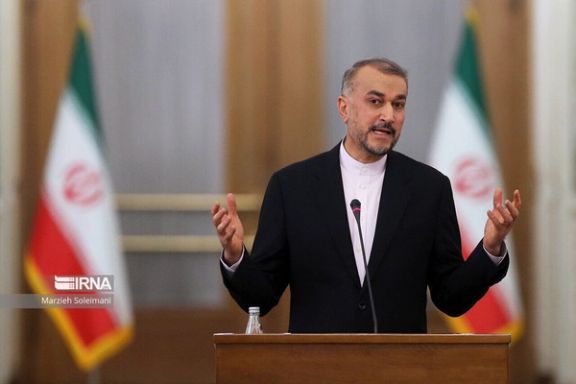
Iran's Foreign Minister Hossein Amir-Abdollahian has called for an urgent meeting of the Council of foreign ministers of the Organization of Islamic Cooperation (OIC) to address the situation in Gaza.
He made the plea during a phone conversation with OIC Secretary General Hissein Brahim Taha on Thursday, Iranian state media reported.
The call for the meeting comes amid mounting international apprehension over Iran's backing of militant groups exacerbating tensions in the region.
Iran-backed Hamas launched an invasion of Israel on October 7, resulting in the deadliest single day for Jews since the Holocaust. The subsequent retaliation by Israel, backed by US support for its right to self-defense, has escalated into a regional proxy conflict.
Iran's proxies in Syria, Lebanon, Iraq, and Yemen have joined the fray in solidarity with Hamas in Gaza. Despite Tehran's continual denial of involvement in the October 7 attack, which claimed the lives of 1,200 people, predominantly civilians, and led to the capture of over 250 hostages taken to Gaza, Iranian officials continue to engage in public meetings with Palestinian militant groups long known to be supported, armed, and trained by Iran.
On Tuesday, Amir-Abdollahian held a meeting with Hamas' political bureau head, Ismail Haniyeh, in Qatar.
The meeting came during a whirlwind tour of the region, which commenced last Friday. During his visit to Doha, where Hamas maintains a significant presence, Amir-Abdollahian held separate discussions with Qatari officials, including his counterpart, and the Emir of Qatar.
The conclusion of his regional tour in Qatar came after engagements with regime-backed militant leaders in Syria, including discussions with President Bashar al-Assad.
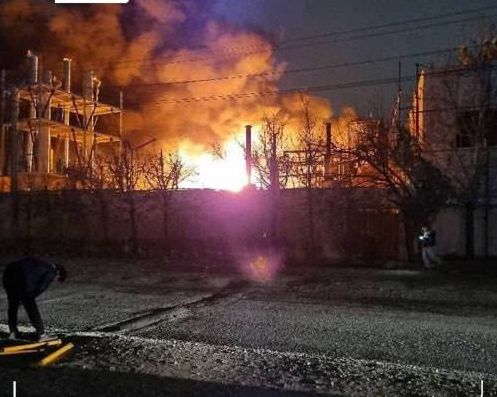
A huge explosion has occurred at a chemical factory, apparently a solvent manufacturing facility, in Shahriyar, west of Tehran, Iranian state media reported Thursday night.
According to Fars news agency, the explosion took place at Salar Chemistry Company, about 30 kilometers west of the capital Tehran.
Mohsen Hamyani, the CEO of the Qods Municipality Fire Department, said that several fuel tanks exploded at the factory, adding that firefighters are currently extinguishing the fire and preventing it from spreading to other tanks.
Confirming that the fire is very large, he said that the cause of this explosion is currently unclear, and determining its cause requires the assessment of experts.
Earlier in the week, Iran's main gas pipeline network was struck by at least two explosions at different locations, with government officials labeling it as "sabotage". The scale of damage and disruption caused by multiple gas pipeline explosions became increasingly apparent the following day, as homes and industries in several large provinces were impacted.
The Iranian Ministry of Petroleum attributed the explosions along gas pipelines in multiple regions of Chaharmahal and Bakhtiari and Fars provinces to sabotage operations by “destructive elements and enemy conspiracies” aimed at disrupting gas supply to major provinces.
It is unclear if the blaze in the chemical plant is the result of a mishap or intentional. Since mid-2020 many acts of sabotage have happened in Iran targeting nuclear, military and industrial facilities.
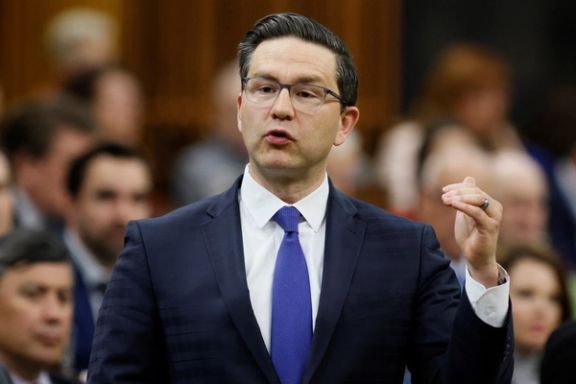
The office of Pierre Poilievre, Canadian lawmaker and the leader of the opposition Conservative Party, has told Iran International that he has provided no recommendation letter in support of granting visa to the son of Iran’s parliament speaker.
Earlier in the week, a Canadian Federal Court document emerged on social media indicating that in 2022, Es’haq Ghalibaf, the son of Iran’s parliament speaker and former IRGC commander, Mohammad-Bagher Ghalibaf, filed for the judicial review of the processing time of his immigration application and the federal court ruled that his application should be granted.
The document also revealed that Polivier's office made "repeated inquiries" about the progress of his application. They were unsubstantiated reports that the lawmaker provided him with a recommendation letter. Many Iranians have demanded an explanation from Poilievre, questioning why the lawmaker intervened in this case.
Poilievre’s office rejected the allegation about a recommendation letter, saying “no offers or letters of support were ever provided” for Es’haq Ghalibaf.
“In this case, a constituent inquired about the status of an application on behalf of the applicant [Es’haq Ghalibaf], which the office provided as it would for hundreds of other cases for the over 130,000 residents which it serves. This is a normal and routine function of a constituency office and had absolutely no bearing on the outcome of the case,” the office added.
“Conservatives continue to be very concerned about Canada being used as a safe haven for associates of the regime in Tehran to hide,” the office stressed, further urging Canadian Prime Minister Justin Trudeau to take action against the agents of the Iranian regime who “harass, intimidate, and coerce” Canadian citizens with impunity.
Poilievre is a staunch critics of the Islamic Republic in Canada and has supported the designation of the IRGC as a terrorist organization.
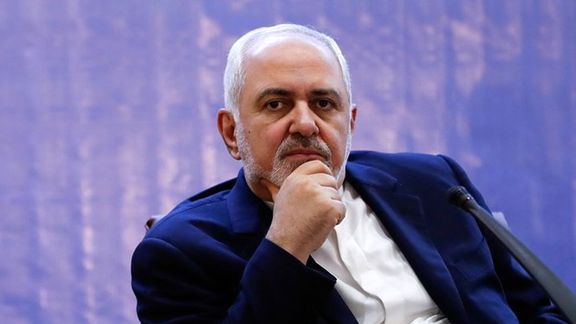
Iran’s former foreign minister, Mohammad Javad Zarif, claims the popularity of Iran's Palestinian proxy, Hamas, has “greatly increased” in the wake of the atrocities of October 7.
“Despite all the damage inflicted on the Palestinians, Israel has failed to revive the myth of its invincibility,” Iran’s former foreign minister said of the attacks which saw 1,200 mostly civilians murdered in a single day by the Gazan militia and over 250 taken hostage.
Iran continues to deny its hand in the invasion which saw thousands of Hamas militia infiltrate Israel by air, land and sea, however, Tehran continues its very public, high level engagement with Palestinian militant groups, such as Hamas and the Islamic Jihad, which it has for years funded, armed and trained.
Last month, Ali-Akbar Salehi, Iran’s former foreign minister and the former head of the country’s nuclear agency, stressed that Tehran will “never” recognize Israel “even if a Palestinian state is established.”
“As long as the [Israeli] entity exists and is active in our region, the crisis will remain between Iran and the regime that is occupying Jerusalem, even if a Palestinian state is established. I am referring to the proposed two-state solution,” Salehi pointed out.
In 2015, Supreme Leader Ali Khamenei said Israel must be destroyed in 25 years and the government even set up a countdown clock in Tehran and other Iranian cities.
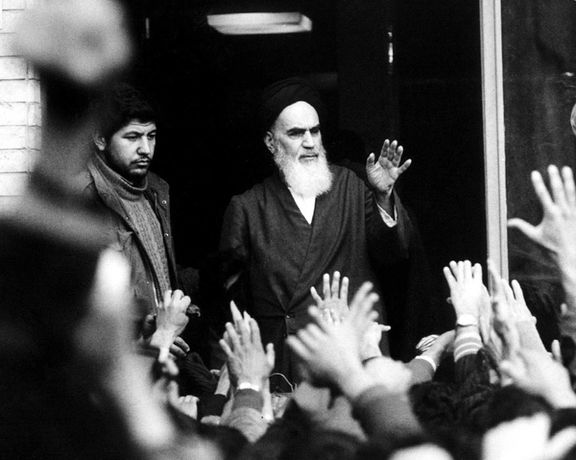
As the Islamic Regime of Iran celebrates its 45th anniversary, it's crucial to reflect on the profound significance of human rights, accountability, and justice.
Delving into the dark chapter of Iran's history, we confront the grim realities of the 1981 massacre, witnessing the extent of the atrocities and their enduring impact on the nation's legal foundations. This sad reflection serves as a stark reminder of the imperative to uphold human rights and ensure accountability in the wake of mass atrocities.
In the wake of the 1979 revolution that toppled the Shah of Iran and established the Islamic Republic, the world watched with anticipation as the country embarked on a new path. Iran was at a crossroads, transitioning from a monarchy to an Islamic republic led by Shia clerics. However, what followed was a period marked by political turmoil, violent oppression, and a ruthless crackdown on dissent that remains one of the darkest chapters in Iran's history. The executions of the former regime’s government officials and army leaders right after the revolution, followed by the 1981 massacre in Iran initiated by a Fatwa from Ayatollah Khomeini, the Supreme Leader at the time, stand as a haunting reminder of the brutality that can accompany political transitions.
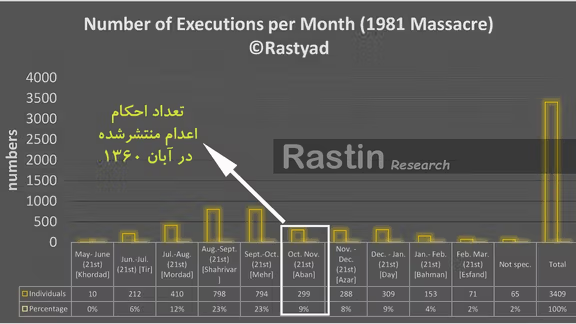
The 1981 Massacre: A Forgotten Tragedy
Shortly after the 1979 revolution, Shia clerics seized control of most political institutions in Iran, rapidly consolidating their power. This newfound regime embarked on a mission to establish a religious dictatorship in the Middle East's second-largest country. Their approach was characterized by totalitarian tendencies and an iron grip on the nation's political landscape.
One of the most horrifying aspects of this regime's consolidation of power was the 1981 massacre, a mass atrocity that received insufficient attention in the years that followed. This massacre, which occurred between June 1981 and March 1982, targeted a wide range of political opponents, including communists, socialists, social democrats, moderate Islamists, liberals, monarchists, and followers of the Bahá'í Faith. It stands as one of the most extensive atrocities committed by the Islamic Republic of Iran after the 1979 revolution.
The mass killings of political prisoners in Iran in 1981 were not spontaneous acts of violence. They were deliberate, organized, and well-planned crimes against humanity. These atrocities involved various factors, including personal identity issues and conflicts between different religious, political, and social groups. The Islamic Government of Iran did not hide this massacre; they proudly announced the names of the executed in newspapers, publicly boasted about it, and defended themselves vehemently when faced with international condemnation.
To gain a comprehensive understanding of the 1981 massacre, it is essential to delve into the research conducted by the Rastyad Collective and the revelations it has brought forth. Their site documents over 3500 executions across 85 cities, shedding light on the tragic fate of many. Their meticulous examination of the events surrounding the massacre affirms the widely held belief that it transpired within a legal vacuum, with the state resorting to extra-legal means of violence to assert control. Furthermore, their findings shed light on the significant impact of this massacre in shaping the legal framework of Iran's theocratic regime. By perpetrating such egregious acts, the regime instilled fear and apathy among the populace, solidifying its grip on power and stifling dissent.
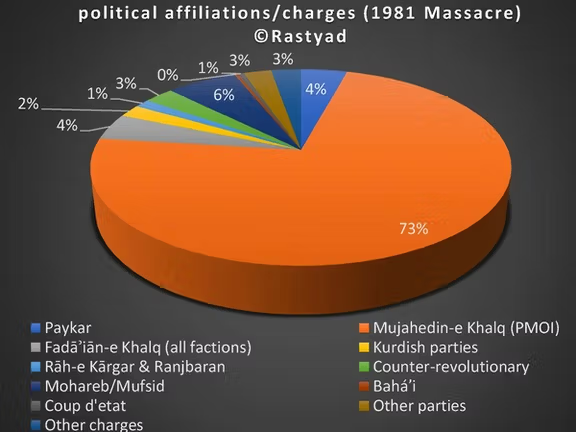
On a political level, the massacre unfolded within a crisis triggered by post-revolutionary circumstances. The clerical rule seized power by suspending the pre-revolutionary legal order, allowing them to monopolize political power. On a legal level, the execution of political dissidents occurred within this legal vacuum. Establishing Islamic Revolutionary Courts and ratifying the first Islamic Penal Code in 1982 were crucial steps that solidified the regime's legal foundations.
The Rastyad Collective's research firmly establishes that the 1981 massacre was carried out in a legal vacuum. The extra-legal use of state violence was employed to eliminate political dissidents and critics. This practice involved ill-grounded and ruthless legal proceedings and trials, leading to the sentencing of thousands to death. These actions epitomized a political system willing to resort to brutality to silence opposition and maintain power. The Rastyad Collective's research underscores the role of the 1981 massacre in the development and ratification of Iran's legal framework and the consolidation of a totalitarian theocratic system. It provides a harrowing account of state violence and its enduring impact on the nation's political and legal landscape.
What distinguished the 1981 massacre from other atrocities of the Islamic Regime of Iran is its unique legal status. The trials of the accused lacked the standards of a fair trial, and the judicial authority responsible for issuing death sentences, as well as the crimes based on which these sentences were issued, did not exist in Iran's judicial laws at the time. Revolutionary courts sentenced thousands of people to death without a defined status or jurisdiction in Iran's judicial system. These courts operated illegally for nearly two decades until they were incorporated into the official judicial system in 1994.
Many individuals executed in 1981 were accused of "Moharebeh" (waging war against God) or "Mofsed-e-filarz" (corruption on earth). However, these crimes were not defined in Iran's judicial laws until later, and their inclusion was gradually added to the Islamic Penal Code in 1982. Due to the lack of legal basis for the charges and the absence of fair trial procedures, the executions carried out in 1981 are considered illegal and examples of "state murder."
Another particularly distressing aspect of the 1981 massacre was the execution of children under the age of 18. This occurred despite international commitments not to execute children under the age of 18, which were still valid from the previous regime. In documenting the tragic loss of innocent lives, particularly children, during a dark period in Iran's history, Rastyad reports that only in Behesht-e-Zahra cemetery plot 41, 104 graves belong to underage children.
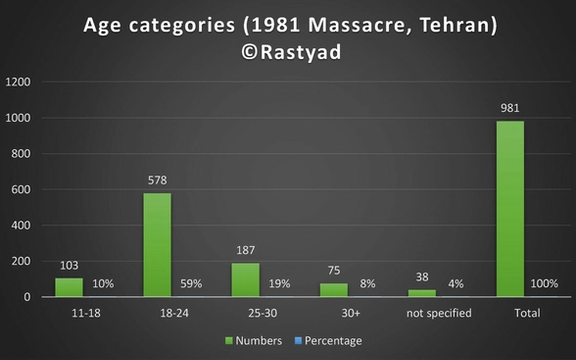
Last year, Javid Rahman, the UN Special Rapporteur on Iran, spoke at an event organized by the University of Amsterdam and the Netherlands Institute for War, Holocaust, and Genocide Studies. He emphasized the pivotal role of research on the 1981 Massacre in unraveling the complex web of connections between the past atrocities of the Islamic Regime of Iran and present-day human rights abuses. The findings offer invaluable insights into the mechanisms of state-sponsored violence and the enduring trauma inflicted upon countless individuals and families.
Furthermore, Rahman explored the far-reaching implications of the 1981 massacre on Iran's legal and judicial systems. He underscored how the establishment of revolutionary courts and the normalization of child executions represented grave violations of international human rights law, perpetuating a culture of impunity and injustice.
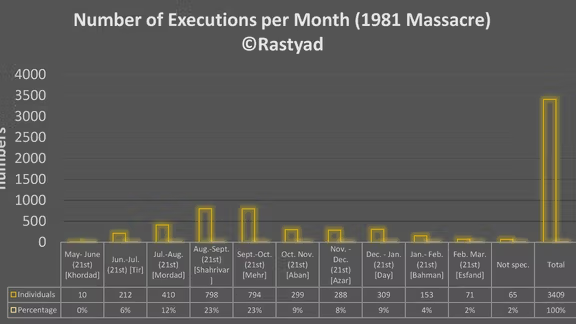
The legacy of the 1981 massacre continues to haunt Iran, with ongoing human rights abuses perpetrated by the Islamic Regime. The regime's current practices, including arbitrary arrests, enforced disappearances, and extrajudicial killings, reflect a pattern of impunity and disregard for basic human rights. Despite international condemnation, perpetrators of these atrocities continue to operate with impunity, further underscoring the urgent need for accountability and justice.
In conclusion, the legacy of the 1981 massacre continues to haunt Iran, with ongoing human rights abuses perpetrated by the Islamic Regime. The regime's current practices, including arbitrary arrests, enforced disappearances, and extrajudicial killings, reflect a pattern of impunity and disregard for basic human rights. Despite international condemnation, perpetrators of these atrocities continue to operate with impunity, further underscoring the urgent need for accountability and justice. Building upon this, the international community must heed the lessons of history and confront the legacy of the 1981 massacre with courage and determination. World leaders must prioritize human rights and justice in their dealings with Iran, ensuring that the victims of past atrocities are not forgotten and that future generations are spared from similar suffering. By amplifying the voices of the victims and advocating for accountability, we can pave the way for a brighter, more equitable future for Iran and its people.